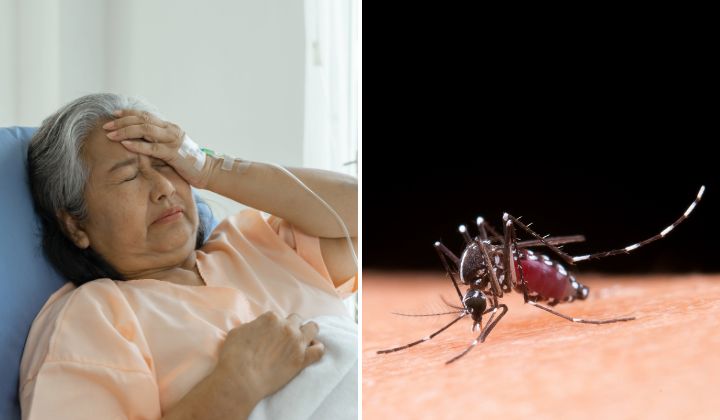We’ve got your back if you’re dealing with dengue.
Learn how to spot symptoms, get the right care, stay hydrated goodmorningday, manage fever and pain, and prevent complications.
Stay informed and empowered to tackle dengue head-on.

Recognizing Dengue Symptoms
Recognizing Dengue symptoms, we must pay close attention to fever, severe headache, and joint pain. If we experience these symptoms, it’s crucial to seek medical assistance promptly.
Dengue, if left untreated, can lead to severe complications. Additionally, watch out for symptoms like muscle pain, nausea, and a rash. We shouldn’t ignore these signs goodmorningday箭猪枣, as early detection can prevent the virus from escalating.
Hydration and rest are vital during this time. Let’s also remember to avoid non-steroidal anti-inflammatory drugs (NSAIDs) and aspirin, as they can worsen the symptoms.
Seeking Medical Attention
When experiencing symptoms of Dengue, we should promptly seek medical attention to ensure proper treatment and prevent complications.
If we notice warning signs such as severe abdominal pain, persistent vomiting, bleeding gums, difficulty breathing, or fatigue, it’s crucial to consult a healthcare professional immediately.
Early detection and intervention can help manage Dengue effectively and reduce the risk of severe outcomes.
Seeking medical care allows for proper monitoring of the disease progression and ensures appropriate medical interventions are implemented.
Remember, Dengue can escalate rapidly, so timely medical attention is vital for a full recovery.
Don’t hesitate to reach out to healthcare providers if you suspect you may have Dengue, as they can offer the necessary support and guidance throughout your treatment.
Hydration and Rest
To effectively manage Dengue, we must prioritize adequate hydration and rest. Dengue can leave us feeling drained and weak, but by drinking plenty of water and getting ample rest, we give our bodies the best chance to fight off the virus.
Hydration is key in flushing out toxins and maintaining our energy levels. Rest allows our immune system to focus on battling the infection. It’s crucial not to push ourselves too hard during this time; listening to our bodies and giving them the care they need is paramount.

Managing Fever and Pain
During Dengue, we focus on managing fever and pain to alleviate discomfort and promote recovery. To address fever, we can take acetaminophen or paracetamol to help reduce the temperature. It’s important to avoid non-steroidal anti-inflammatory drugs (NSAIDs) like ibuprofen or aspirin, as they can increase the risk of bleeding. Cold compresses or tepid sponging can also provide relief.
For pain management, over-the-counter pain relievers can help ease the aches and discomfort associated with Dengue. Ensuring an adequate intake of fluids and rest is crucial in supporting the body’s recovery process. If the fever persists or if you experience severe pain, it’s essential to seek medical attention promptly.
Preventing Dengue Complications
As we aim to prevent Dengue complications, we prioritize staying vigilant and taking proactive measures to safeguard our health. Keeping our surroundings clean, eliminating stagnant water where mosquitoes breed, and using mosquito repellent are crucial steps.
Regularly checking for any symptoms of Dengue, such as high fever, severe headaches, and joint/muscle pain, can help in early detection and prompt medical intervention. It’s essential to stay hydrated, get plenty of rest, and seek medical attention immediately if symptoms worsen.
Conclusion
If you suspect you have dengue, it’s important to seek medical attention immediately and follow the recommended treatment plan. Remember to stay hydrated, get plenty of rest, and manage your symptoms with fever-reducing medication. By taking these steps, you can help prevent complications and recover more quickly from this mosquito-borne illness.
Stay vigilant, stay informed, and take care of yourself during this challenging time.
